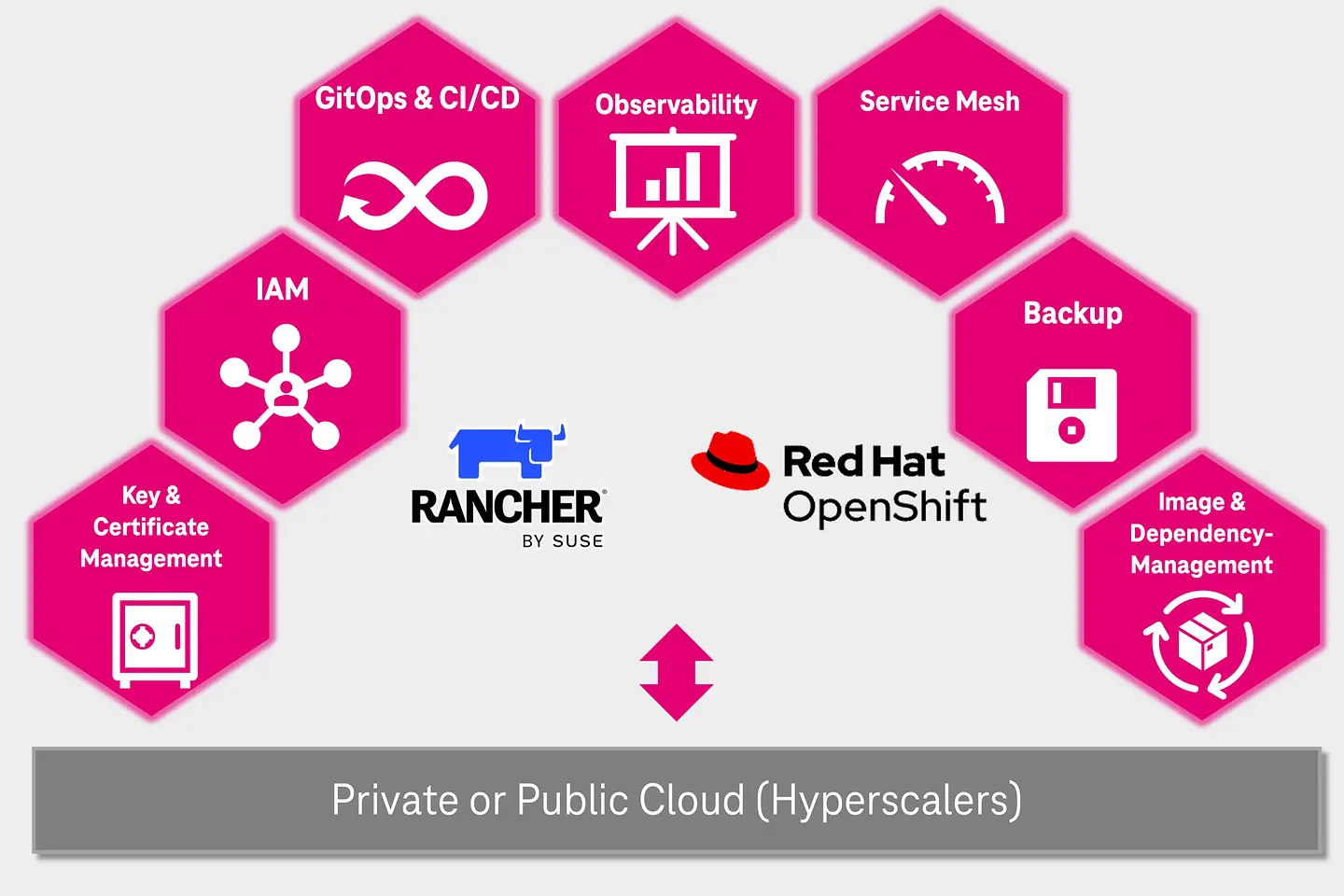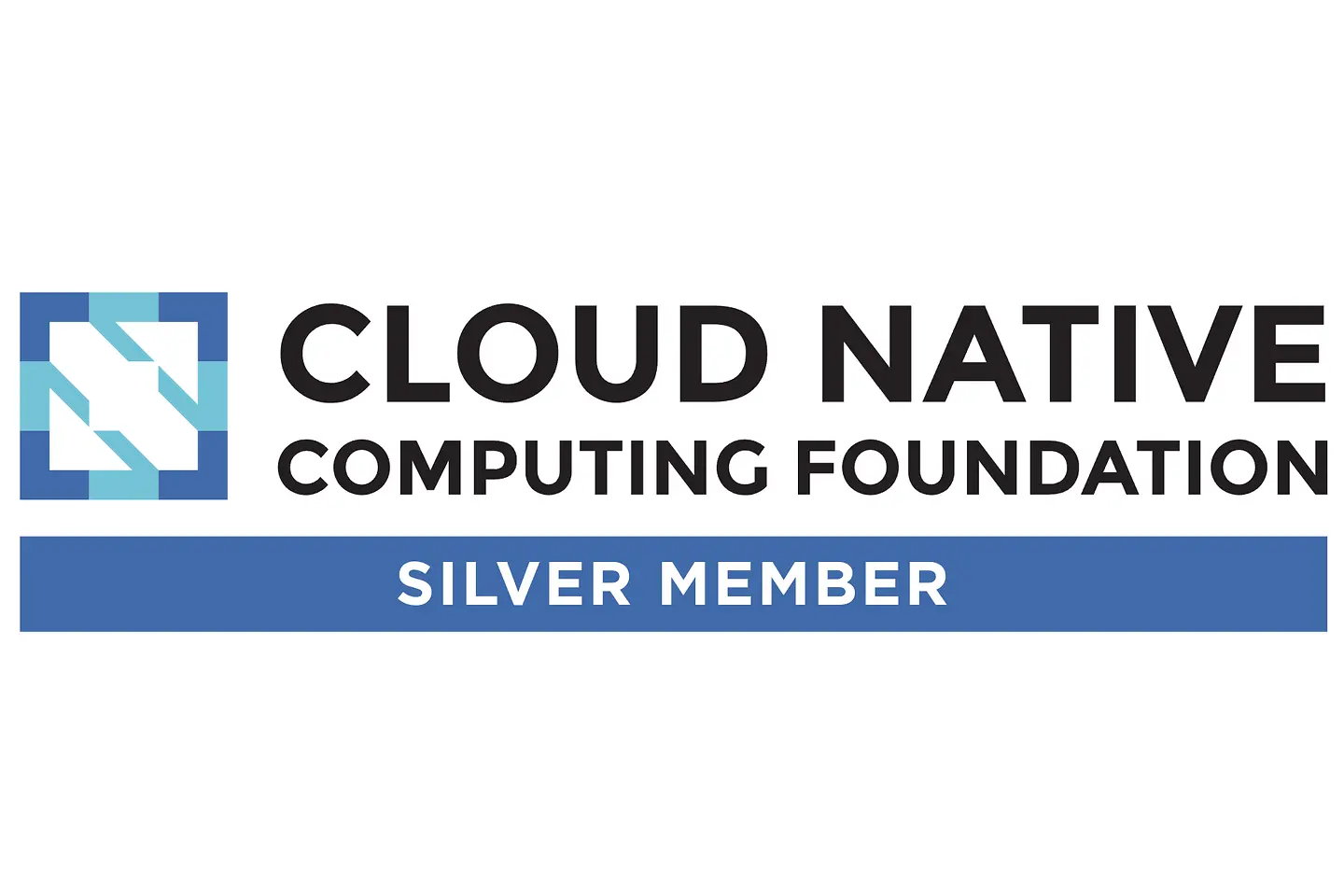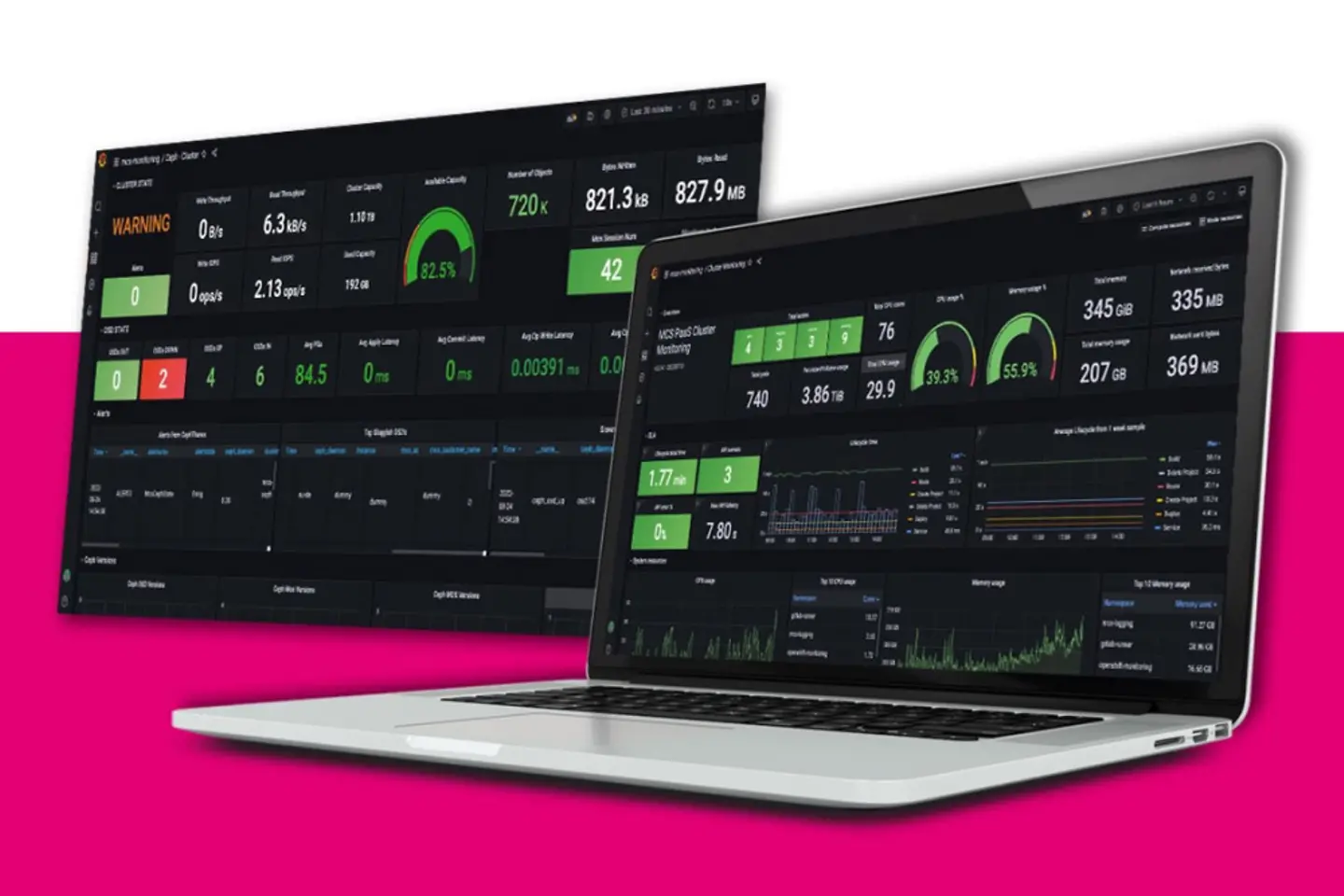
Our Managed Container Stack (MCS) enables the operation of containerized applications and middleware on any private or public cloud platform. Customers can choose to run the managed Kubernetes platform for container orchestration on the basis of either Red Hat OpenShift or SUSE Rancher. With support available 365 days a year and a defined service level agreement, companies are benefitting from the highest level of reliability.

In contrast to the Kubernetes services offered by hyperscalers, the Managed Container Stack provides a series of integrated services that are typically necessary for productive use. Based on open-source software, services for logging, monitoring, backup and restore, and container registries with vulnerability scanning are ready for immediate use. Customers have the flexibility to use their own tool stack or the services provided for their applications.
Our MCS is based on security-approved components and cloud architectures that have been tested according to T-Systems' stringent standards. The platform is preconfigured and ready for use as production environment. We can build upon the know-how and best practices acquired from operating hundreds of customer projects since 2015. In order to meet the highest security standards, our solutions are BSI:C5 and SOC 2® compliant.

Our professional services team can help you get the most out of Kubernetes by providing expert guidance, design, and implementation services. We offer Site Reliability Engineering (SRE) expertise to ensure the availability, scalability, and performance of your Kubernetes infrastructure. Whether you are just getting started or looking to optimize an existing deployment, we can help you achieve your goals quickly and efficiently. Our team of CNCF-certified Kubernetes experts have extensive experience working with a wide range of industries and can help you design and implement a solution that meets your specific needs. We can help you succeed with Kubernetes.

Developers value flexibility: companies can choose between a managed service or a self-service model. The self-service model enables cluster creation and integration according to customer preference, while T-Systems can manage production environments with the managed service model to guarantee SLA and support.
Your company clusters can be distributed across private and public cloud infrastructures. MCS can be set up on virtually any infrastructure – in line with T-Systems security standards and with consistent user administration.